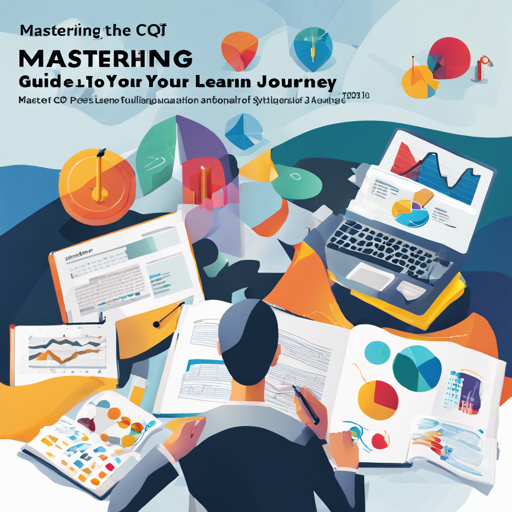Welcome to my page! I am thrilled to share that I have passed the CQF with Distinction for the January 2023 program. If you’re here, it means you might be on a similar journey in quantitative finance, so let’s dive into the resources available for your studies!
Course Overview
The CQF (Certificate in Quantitative Finance) comprises a variety of modules designed to equip you with crucial financial knowledge and skills. Below is an overview of the modules and their respective lectures:
- Module 1
- Lec1 – Random Behaviour of Assets
- Lec2 – Binomial Model
- Lec3 – PDEs Transition Density Functions
- Lec4 – Applied Stochastic Calculus I
- Lec5 – Applied Stochastic Calculus II
- Lec6 – Martingales
- Module 2
- Lec1 – An Intro to Portfolio Theory
- Lec2 – Fundamentals of Optimisation and Application, Black-Litterman Model
- Lec3 – Value at Risks and Expected Shortfalls
- Lec4 – Asset Returns: Key Imperial Stylised Facts
- Lec5 – Volatility Models: The ARCH Framework
- Lec6 – Risk Regulation Basel III
- Lec7 – Collateral and Margins
- Module 3
- Lec1 – Black Scholes Model
- Lec2 – Martingales Theory – Applications to Option Pricing
- Lec3 – Martingales PDEs: Which, When & Why
- Lec4 – Intro to Numerical Methods
- Lec5 – Exotic Options
- Lec6 – Understanding Volatility
- Lec7 – Further Numerical Methods
- Lec8 – Derivatives Market Practice
- Lec9 – Advanced Greeks
- Lec10 – Advanced Volatility Modelling
- Lec11 – FX Options
- Module 4
- Lec1 – An Introduction to Machine Learning I
- Lec2 – An Introduction to Machine Learning II
- Lec3 – Maths Toolbox for Machine Learning
- Lec4 – Supervised Learning I
- Lec5 – Supervised Learning II
- Lec6 – Decision Tree & Ensemble Learning
- Module 5
- Lec1 – Unsupervised Learning I
- Lec2 – Unsupervised Learning II
- Lec3 – Deep Learning & Neural Networks
- Lec4 – Natural Language Processing
- Lec5 – Reinforcement Learning I
- Lec6 – Reinforcement Learning II
- Lec7 – AI Based Algo Trading Strategies
- Lec8 – Practical Machine Learning Case Studies for Finance
- Lec9 – Quantum Computing
- Module 6
- Lec1 – Fixed Income Products Analysis
- Lec2 – Stochastic Interest Rate Modelling
- Lec3 – Calibration & Data Analysis
- Lec4 – Probabilistic Methods for Interest Rates
- Lec5 – Heath Jarrow & Morton Model
- Lec6 – LIBOR Market Model
- Lec7 – Further Monte Carlo
- Lec8 – Cointegration for Trading
- Lec9 – Credit Default Swaps
- Lec10 – Credit Derivatives & Structural Models
- Lec11 – Intensity Models
- Lec12 – CDO Correlation Sensitivity
- Lec13 – X Valuation Adjustment
Understanding the Learning Process: An Analogy
Think of your learning process as a journey through a vast and dense forest. Each module is a different path leading you deeper into the woodlands of knowledge. The lectures act as signposts, guiding you step-by-step:
- Paths (Modules): Each path reveals a different scenery; whether it’s traversing through the intricate terrain of Machine Learning or the complex leaves of Stochastic Calculus, each route broadens your understanding.
- Signposts (Lectures): Just as a signpost gives directions, lectures provide you with essential information and tools to navigate the subject effectively.
- Exploring (Assignments): The assignments are akin to exploring hidden alcoves where you apply what you’ve learned. It’s here that you develop practical skills, discover nuances, and encounter challenges.
Troubleshooting Tips
As with any educational journey, challenges may arise. Here are some troubleshooting tips to help you navigate through potential hurdles:
- **Problem**: Markdown (.md) and Jupyter notebooks are not displaying correctly on the website.
- **Solution**: Clone the .md file into your local setup where you can use appropriate software that supports formatting.
- **Problem**: LaTeX formulas not rendering properly.
- **Solution**: Similar to the above, cloning the file and using a local LaTeX editor can alleviate this issue. Don’t hesitate to use various online LaTeX editors if necessary.
For more insights, updates, or to collaborate on AI development projects, stay connected with fxis.ai.
Final Thoughts
At fxis.ai, we believe that such advancements are crucial for the future of AI, as they enable more comprehensive and effective solutions. Our team is continually exploring new methodologies to push the envelope in artificial intelligence, ensuring that our clients benefit from the latest technological innovations.
Thank you for visiting my site! I hope this guide proves helpful in your quest for knowledge in quantitative finance. Remember, persistence is key!

